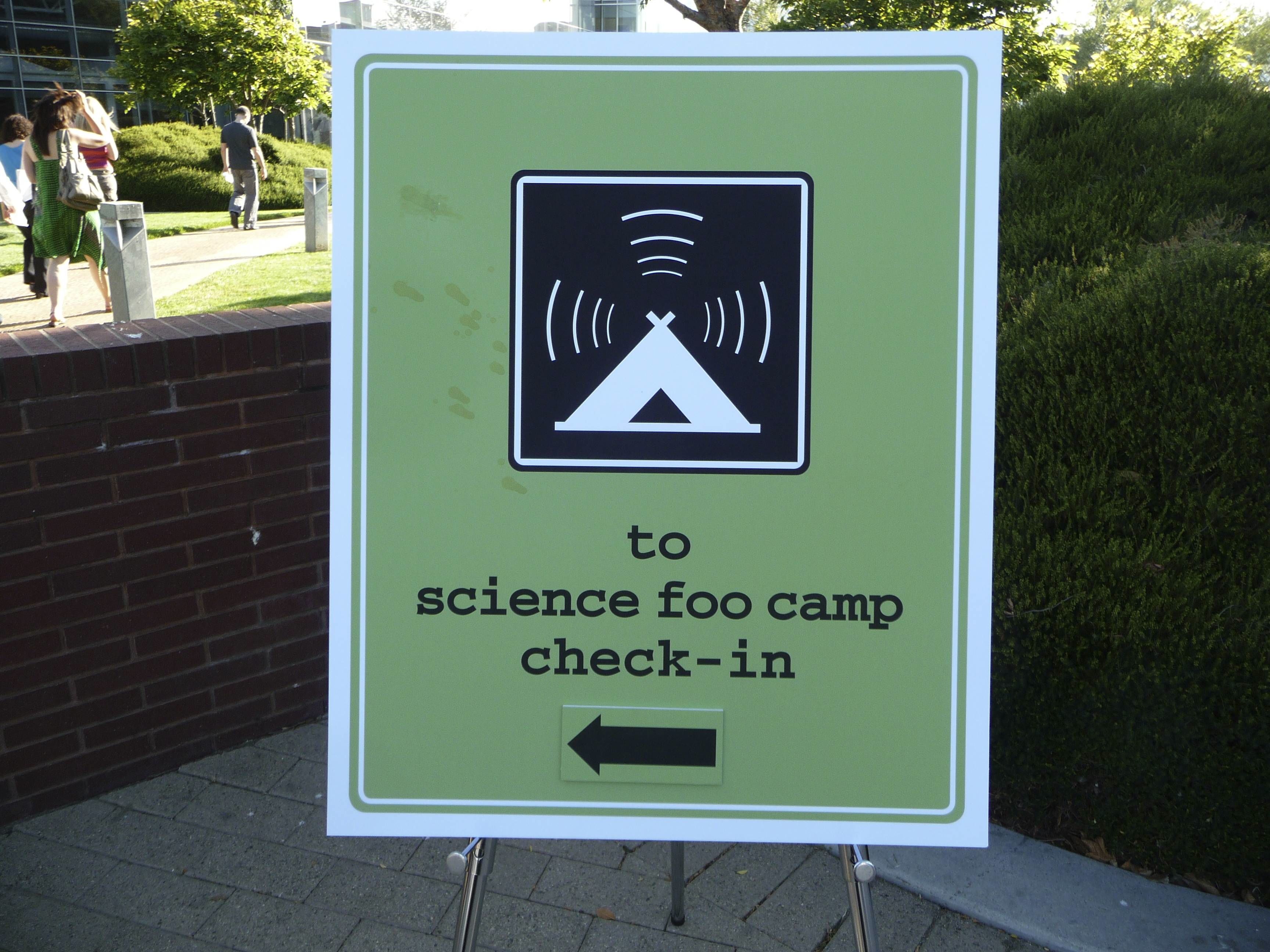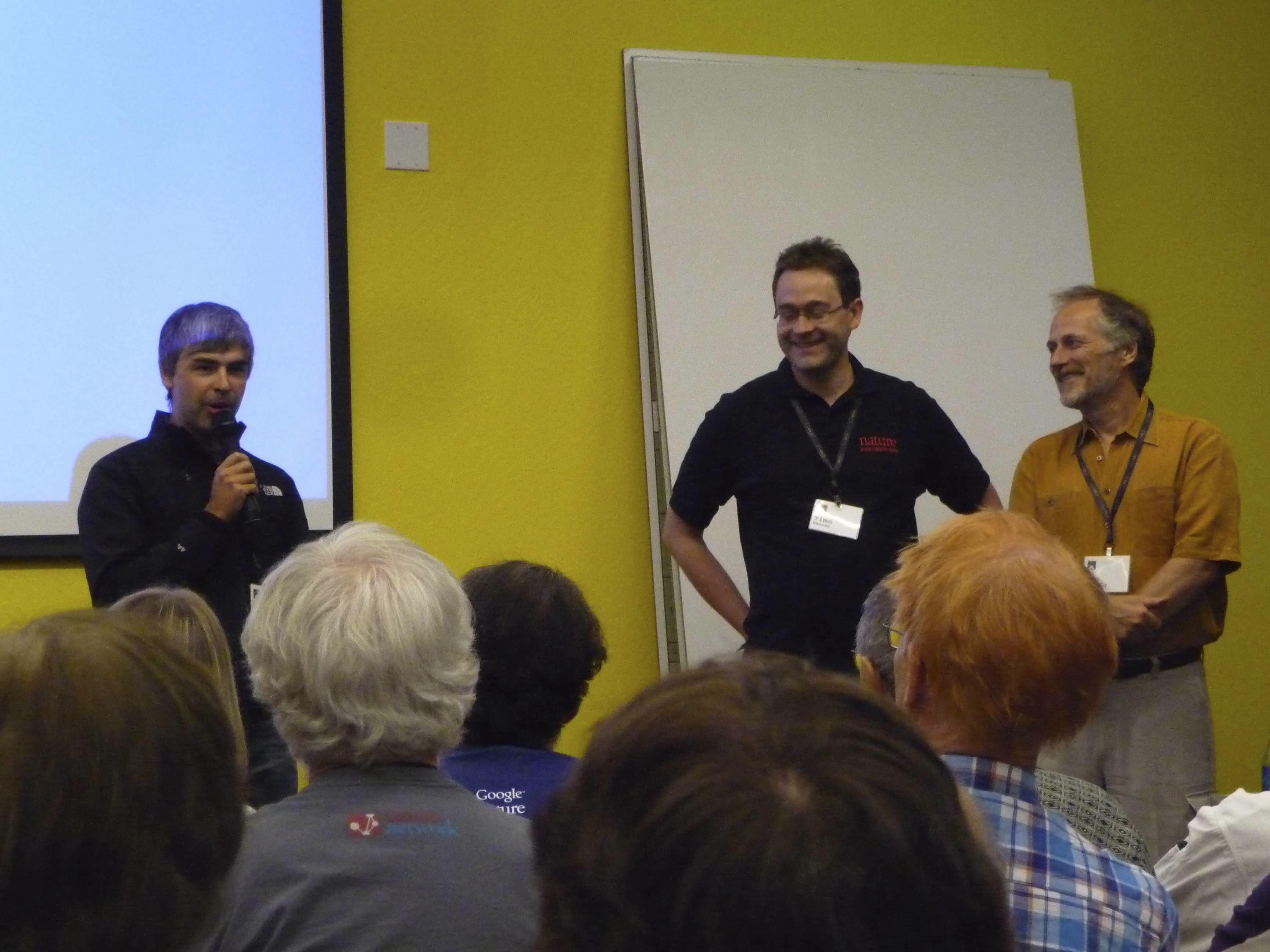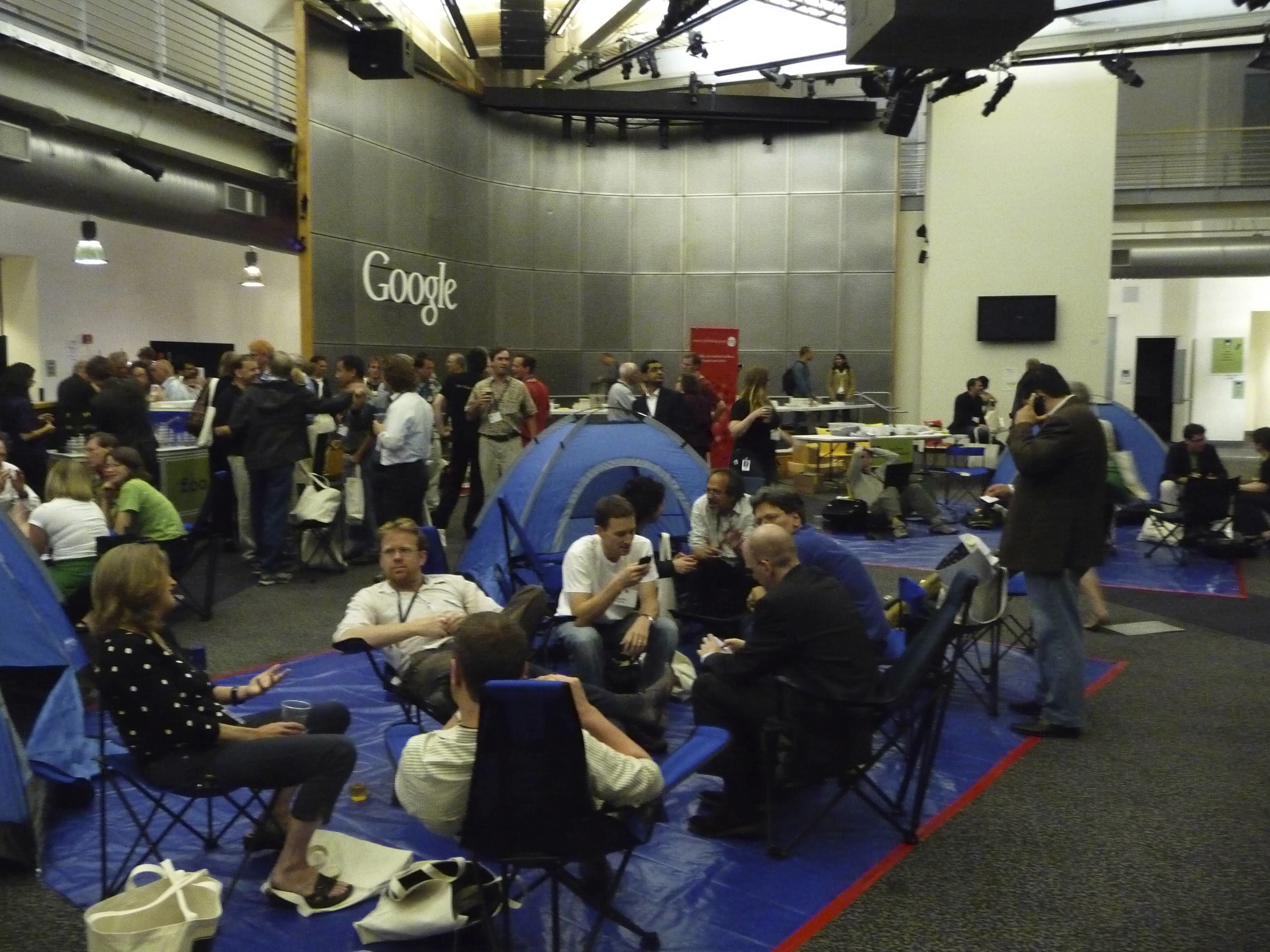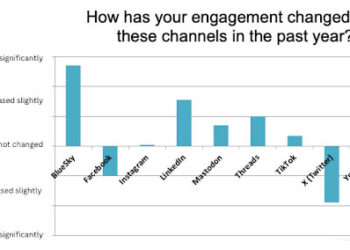Sci Foo Camp 2009 kicked off last night with opening remarks by Tim O’Reilly (of O’Reilly Media), Timo Hannay (of Nature Publishing Group), and Larry Page (of Google). Tim and Timo described the origins of Sci Foo Camp and the structure of the weekend. Larry Page talked about how interesting ideas can change the world and challenged the conference attendees to come up with ideas with far-reaching impact.

“Foo” is an acronym for “Friends Of O’Reilly” (as in O’Reilly Media). The first Foo Camp was held in 2003 at the O’Reilly headquarters in Sebastopol. The event was conceived as an “unconference”—a gathering wherein the participants create an agenda on the spot, organizing sessions on topics that attendees find interesting. Sci Foo Camp is a distinct conference from Foo Camp. Whereas Foo Camp focuses on the future of technology, Sci Foo Camp—now in its fourth year—is about the intersection of science and technology. The other major distinction between the two events is that Sci Foo Camp is co-sponsored by O’Reilly Media, Nature Publishing Group, and Google, and it is hosted at Google’s campus (known as the Googleplex) in Mountain View. Also, there is no actual camping involved in Sci Foo, though Google has set up a “campground” inside their offices to pay homage to the event’s genesis (attendees of the original Foo Camp are invited to camp in space outside O’Reilly’s Sebastopol offices).
Immediately following the opening remarks, attendees were treated to a live demo of Google Wave by Stephanie Hannon of Google. Google Wave is Google’s next generation communication platform, which has yet to be released for beta testing (though you can see a very long video on Google Wave here). A Wave has been set up for Sci Foo Camp, so we will be experimenting with it. I’ll put together a future post reviewing that technology.

After the Google Wave demo, all 200 attendees introduced themselves and their interests. (Each person was allotted three words or short phrases. Mine, for example, were “publishing,” “colonization of the solar system,” and “social media”). Attendees came from all over the world, representing a diverse set of scientific and technological interests.
Then came the session organizing swarm. There are no designated speakers at Sci Foo Camp. Anyone can organize a session. The role of the session organizer is to propose the session and then kick off the discussion. The process for doing this is a bit chaotic and consists of writing a session description on a big sticky note and then making your way through the swarm of people gathered around a set of large boards showing available time slots. You then slap your sticky note on any free spot on the boards. Attendees look over the schedule and can merge sessions together, offer to switch time slots or rooms with other sessions, or pick up additional organizers.

The work done for the day, the conference adjourned to the “camp” area for cocktails and conversation, with sessions to begin this morning.
To augment my blogging on Sci Foo Camp 2009, I’ll be posting pictures to my online gallery throughout the weekend. Check back periodically for more updates.
Discussion
4 Thoughts on "Sci Foo Camp – Day 1"
![Reblog this post [with Zemanta]](http://img.zemanta.com/reblog_e.png?x-id=64859dc2-7144-49d3-867c-c518734accac)


